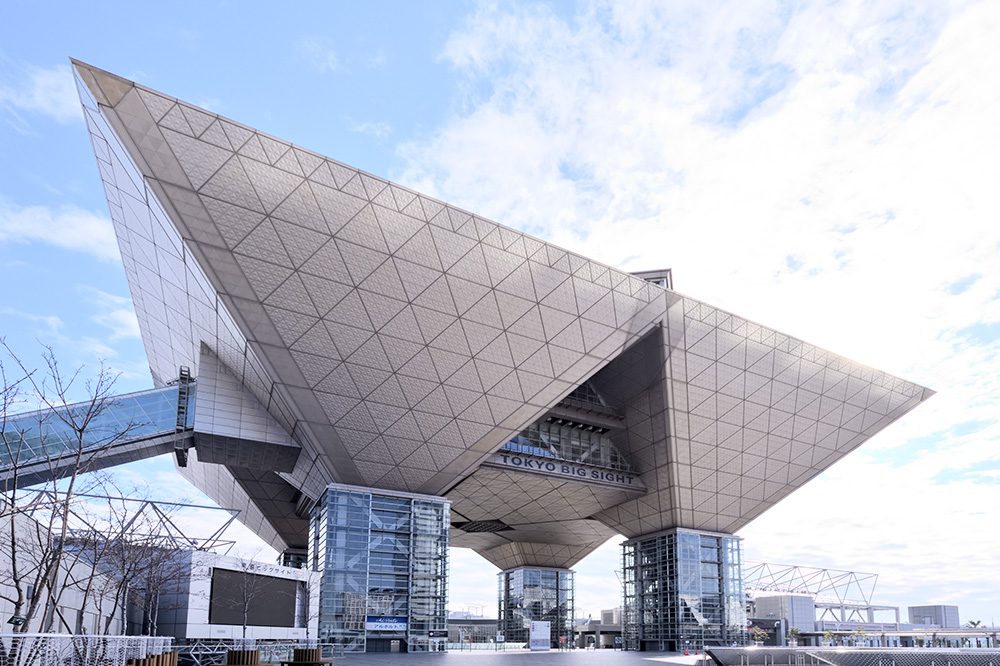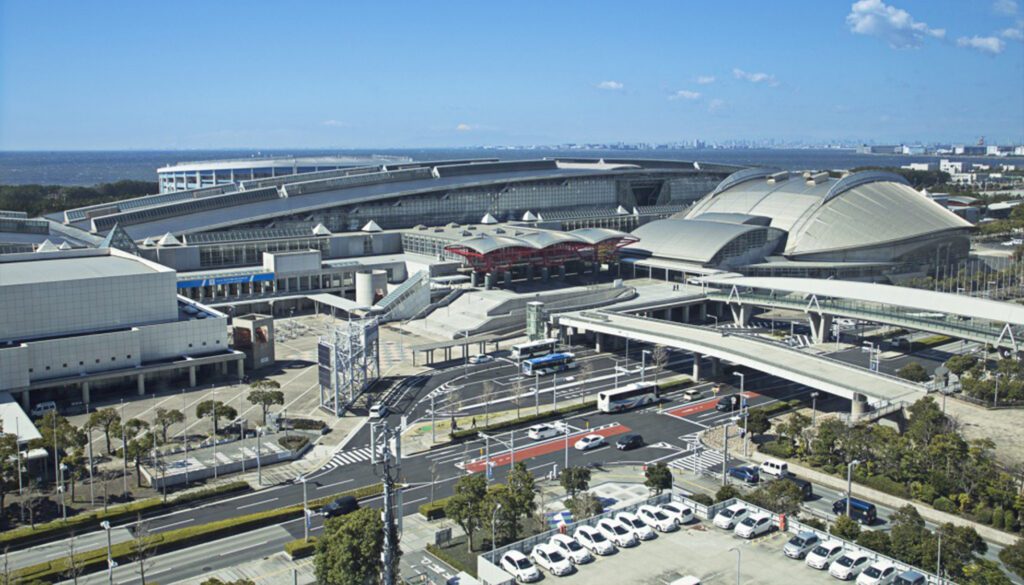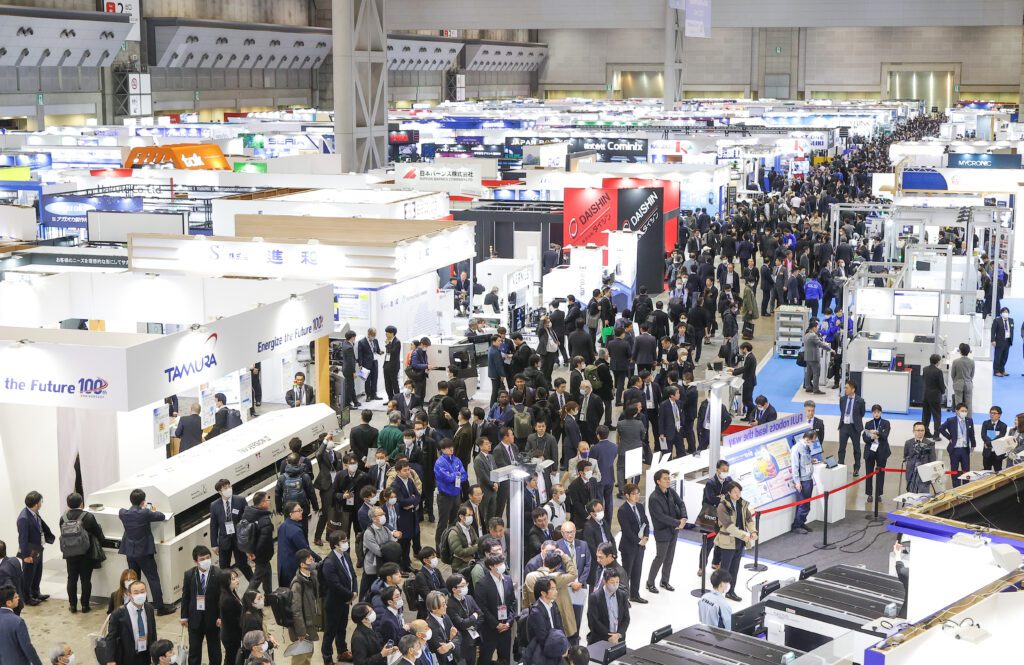Japan, as the world's 4th largest (GDP - 2025) economy, presents both immense opportunities and challenges for European companies. With a strong local competition, emphasis on quality, reputation, and long-term relationships, entering the Japanese market requires careful strategy and persistence.
When it comes to how to enter the Japanese market, participating in exhibitions and trade fairs is one of the most effective strategies. They help you establish credibility and make meaningful B2B business connections. These events offer an invaluable opportunity to meet potential Japanese partners, gain industry insights, and showcase your products to a highly engaged audience.
Benefits of Trade Fairs in Japan for European Businesses
Unlike cold outreaches, which typically have a very low success rate for European companies trying to enter the Japanese market, face-to-face interactions are different. Meeting people at trade shows helps bridge cultural and business gaps. This makes it much easier for you to gain trust and recognition.
Key benefits of participating in Japanese trade fairs include:
- Market Validation: One of the biggest challenges for European businesses entering Japan is understanding local consumer preferences. Trade fairs provide direct feedback from Japanese buyers, distributors, and industry professionals, allowing companies to refine their offerings based on real market demand. This insight is crucial for tailoring products and services to meet Japanese expectations.
- Brand Awareness: Japanese consumers and businesses place great value on familiarity and reputation. Trade fairs offer a chance for you to present your brand to a highly targeted audience actively seeking new products and solutions. Being present at a recognized industry event can significantly improve credibility and long-term brand positioning. It can also be a good reference when discussing with potential partners or customers.
- Networking Opportunities: In Japan, strong business relationships are built through trust and repeated interactions. Trade fairs facilitate direct connections with potential distributors, partners, and suppliers who may be difficult to reach through traditional outreach methods. These in-person meetings create a foundation for long-term partnerships and future negotiations.
- Competitor Analysis: Since the Japanese market is a very competitive one with many local and international players, understanding the competitive landscape is essential for success. Trade fairs provide a first-hand look at competitors, their market positioning, and their unique selling points. This knowledge enables you to adjust your strategies and differentiate yourself effectively.
- Regulatory Insights: Japan has strict industry regulations that can pose significant challenges for new entrants. Trade fairs often feature seminars and discussions with industry leaders and government officials, providing valuable information on compliance, certification requirements, and legal frameworks. Gaining an early understanding of these factors can prevent costly mistakes and delays.
Visitor vs. Exhibitor: How to Choose the Right Participation Style at a Trade Fair
When considering a trade fair in Japan, you can participate either as a visitor or an exhibitor. The choice should align with your business objectives.

Participating as a visitor is often free of charge with a simple online registration. This option allows you to learn more about the industry, observe market trends, and conduct competitor research. However, if the goal is to sell products or find partners, attending as a visitor may not be the most effective approach. Unlike in Europe, where trade fairs often serve as active marketplaces, Japanese exhibitors primarily focus on promoting their own products rather than purchasing new ones. As a result, approaching them as a visitor with sales intentions may not yield favorable results. Also, keep in mind that being “pushy” almost never works on the Japanese market.
For businesses entering Japan, having a dedicated booth at a trade fair is a strong strategy. Although more expensive, it shows clear commitment to the Japanese market. This often attracts serious and interested business partners. Japanese companies attend trade fairs to find new and innovative products. If interested, they may speak with you directly at the event. It’s also common for them to gather materials and follow up later in writing.
Making the Most of a Trade Fair in Japan
If you plan to attend as an exhibitor, thorough preparation is essential for maximizing your chance of success. One effective approach is to identify potential Japanese partners through market research and inform them in advance about your participation. Sharing information about your company and products in advance can help attract interest to your booth. Communicating in Japanese is especially effective. Localized, culturally appropriate materials show professionalism and preparation. They can also draw visitors who already know your offerings. Building relationships with such well-informed attendees is often more fruitful than engaging with the general trade fair audience.
How to communicate effectively at a trade fair?
Mind the cultural and language barriers. Even at trade fairs marketed as "international," many attendees and exhibitors may not be comfortable conducting business discussions in English. (Based on our experience at an Trade fair around 1 of 50 Japanese speak fluent English) Trade fairs are a chance to make strong first impressions and form new business connections. Speaking Japanese, even simple greetings, greatly improves engagement. It can also lead to better business opportunities. If your staff do not speak Japanese, deeper conversations may be difficult. In that case, it is best to use Japanese-speaking interpreters. Ideally, assign one interpreter per person.
Do not forget your business cards
One often overlooked but important point when attending trade fairs in Japan is to bring more than enough business cards. The exchange of business cards (meishi) remains a fundamental part of Japanese business etiquette and plays a key role in establishing initial rapport. Running out of cards during a trade fair can be seen as unprofessional or unprepared, and may hinder future engagement. It is advisable to prepare a substantial quantity of high-quality cards, ideally with Japanese on one side. This ensures smooth introductions and leaves a lasting impression.

Do not expect to "have a deal" at the event
Unlike in some Western markets where deals may be finalized on the spot, trade fairs in Japan are primarily about establishing connections and collecting information rather than closing immediate business agreements. Japanese companies tend to take a careful and deliberate approach to business decisions. If they find your offering compelling, they may follow up with you after the event for further discussions.
Therefore, your primary focus at a trade fair should be to make a strong impression, provide comprehensive information, and build trust with potential partners. If your budget allows, you may also consider giving a presentation at an industry seminar held alongside the trade fair. These seminars are often attended by key decision-makers and professionals who are actively looking for new ideas and innovations.
Key Industry Trade Fairs in Japan
Japan hosts approximately 370 trade fairs and exhibitions annually across various industries. Depending on the industry, Japan hosts a wide range of specialized trade fairs that attract both domestic and international participants. Some of the most notable trade fairs include:
- Food & Beverage: FOODEX Japan (Asia’s largest food and beverage Trade fair), Supermarket Trade Show, FABEX Japan, ANUGA Japan
- Automotive: Tokyo Motor Show (Leading event for automotive innovation)
- Healthcare & Wellness: Medical Japan (Showcasing medical and healthcare innovations)
- Technology & Electronics: CEATEC (Cutting-edge IT and electronics trade fair)
- Retail & Consumer Goods: Japan Shopping Festival (Focused on consumer trends and retail opportunities)
Before deciding which trade fair to attend, it's important to carefully check the profile of each event (eg. what products are highlighted). Reviewing the list of companies that have participated in previous years can help determine whether a particular Trade fair aligns with your business goals. Some of the fairs are rather aimed at the consumers, while others are focusing on the professional audience. Choosing the right event ensures that your time and resources are invested where they have the highest potential for impact.

Conclusion
Trade fairs in Japan are more than just industry events—they are a crucial gateway for European companies to establish credibility, gain market insights, and foster key business relationships. By strategically planning your participation and following up effectively, trade fairs can significantly accelerate your company’s market entry and long-term success in Japan.
Ready to Explore Trade Fairs in Japan?
At Sudy & Co., Ltd., we provide comprehensive support to help European businesses maximize their success at Japanese Trade fairs. With experience supporting European companies at FOODEX Japan, CEATEC, Japan IT Week and others, we offer tailored services including pre-event market research, trade fair registration support, localization of marketing materials, business meeting arrangements (even outside of the trade fair), on-site interpretation, and post-trade fair follow-ups. Our expertise ensures that your participation leads to meaningful business opportunities. Feel free to contact us today to explore how we can help you succeed in the Japanese market.
